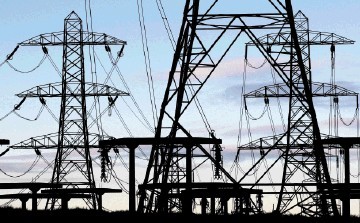
Strange as it may sound, despite the UK being part of the EU single market, currently there is no truly level playing field where the UK generators can compete with their counterparts in the rest of the EU.
Notably, the UK has a higher CO2 tax than the rest of Europe, as well as higher transmission and balancing charges levied on generators, giving thermal generators in continental Europe a competitive advantage over their UK peers.
We have estimated these cost differences for a UK generator compared to equivalent generators in France and the Netherlands in order to assess the impact on UK producers and consumers.
For example, our analysis suggests that UK generators face higher costs than their counterparts in France and the Netherlands equivalent to around 8-8.5 £/MWh, or around 25% of traded UK electricity prices.
Clearly, the existing arrangements have the potential to significantly distort prices to consumers.
Could a potential Brexit rectify this, and what would be the effects?
In the case of the UK’s exit from the EU, it could choose to adjust for these cost differences via an electricity import tariff, also known as a border tax adjustment.
Our analysis considers tariffs on electricity imported from France and the Netherlands since these are two of the neighbouring EU countries to which the UK is directly connected through subsea electricity cables.
If import tariffs are imposed to remove these costs differences, we estimate that this will have the following direct effect on the UK electricity market:
Imports into the UK would fall by roughly a third. In particular, average hourly imports will decrease by over 700 MW.
The effect of this would be to increase security of supply since lower imports in any given period create the possibility to increase imports in case of a supply crunch, assuming that there is no equivalent supply crunch on the other side of the interconnectors.
This effect would be roughly comparable to building an additional power plant that would remain on standby.
Under conditions prevailing in recent years, the gap left by falling imports would be filled by gas and coal generation in roughly equal measure.
However, going forward and as coal capacity is retired, a larger proportion of import substitution would be accounted for by gas generation.
During peak hours (from 5 pm to 7 pm on weekdays) when supply shortages are most likely to happen, interconnector availability to increase imports would be just over 300 MW higher after the introduction of tariffs.
The effect of tariffs on imports is smaller in peak hours because existing price differences between the UK and connected markets are greater, meaning that the imposition of a tariff is less likely to reverse the direction of the price difference and affect interconnector flows.
Overall UK electricity prices would increase since imports would become more expensive.
The effect on prices would be lower in peak hours since the change in imports would also be lower in those hours. In total, electricity consumers in the UK would spend roughly an extra £140m a year or less than £2 extra on the average annual electricity bill.
Finally, absent other factors, higher domestic prices would increase the incentives to invest in domestic generation capacity.
Overall, raising tariffs on electricity imports could act as an insurance mechanism – consumers would pay slightly more every day in exchange for greater security of supply since they would not be as dependent on electricity imports and would have greater flexibility to increase imports in case of a supply crunch.
It is worth being aware that once border tax adjustments are implemented in this sector, there is always a possibility that they will become more widely applied across other products or sectors of the economy, especially for energy and emissions intensive goods.
If this kind of action is taken by the UK post-Brexit, then it could certainly make any agreement on trade with the EU much more difficult to realise as it would potentially be seen as an antagonistic policy stance.
Note: The distinction between the UK and GB is important since generators in Northern Ireland are currently exempted from the Carbon Price Floor that applies to GB generators.
Jostein Kristensen is a partner and Vladimir Parail, senior consultant at Oxera
Recommended for you
